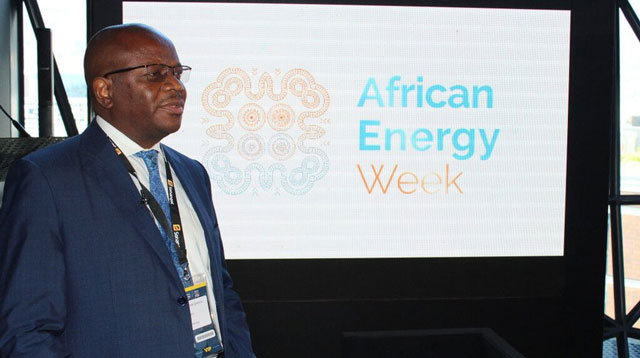
Cape Town, South Africa | THE INDEPENDENT | The first day of African Energy Week 2021 Wednesday saw national oil companies (NOCs) engaged in a presentation on optimizing innovative and strategic exploration mechanisms for profitable and sustainable operations on the continent.
The panel discussion began with an opening presentation by Tim O’Hanlon, Senior Advisor for the Oslo-listed energy and power company, Panoro Energy.
With its diversified production portfolio in Equatorial Guinea, Gabon, and Tunisia, Panoro Energy has demonstrated its credibility as a reliable counterparty following the completion of its most recent production acquisitions from OMV and Tullow Oil.
The key theme of the panel discussion, Increasing Production and Investment in Energy Transition, was moderated by Geof Hill, Director of Something of Value, and featured members representing the Nigerian National Petroleum Corporation (NNPC), Sonangol, Namcor, and the Gabon Oil Company (GOC).
Speaking on the theme, Osvaldo Inacio, Executive Director for Sonangol, stated that, “The topic of this panel is at the core of this event; which is NOCs at the crossroads. Africa still needs to produce oil at a massive scale to power development in the continent,” and posited, “How do we balance that in the context of an energy transition?”
“This conference came at a very appropriate time,” stated K.D. Trivedi from South Africa’s Strategic Fuel Fund, adding that, “We have to look at the whole of Africa to develop this continent and use the energy forum and these types of events to reinvent the wheel. If we work together and if we do the work collectively, certainly, we can have a much better time than any of the other continents.”
The monetization of resources and investment in the oil and gas sector continues to play a role in shaping the global dialogue surrounding the global energy transition as the world shifts towards a low-carbon future. Given these new dynamics, however, oil and gas companies have the opportunity to improve their economic and reputational resilience while considering how to reposition themselves to take advantage of changes in the market.
Dr. Odette Mzaba Makaya, CEO for the GOC, stated that, “For us, the oil industry is not just a simple business, it is critical for the nation and the people. It is time for us to move to natural gas production to bring electricity to people and bring career opportunities to local communities,” and added that, “We ensure that whatever we produce, we give back monetarily to the public treasury. The reason that we are focusing on oil is because the country needs it,” having contributed to over 60% of the country’s GDP.
With a number of NOCs having already set net-zero emissions targets, large-scale investments have been made into lower-emission technologies and business areas which will assist in positioning these companies for the energy transition. Low-carbon devices and carbon capture use and storage technologies provides strong opportunities for a number of oil and gas companies interested in investing into the global energy transition.
“The need of Africa is different from the needs of other global players,” stated Adokiye Tombomieye, Group Executive director for the NNPC, adding that, “This commitment for resolve and production requires huge investment.”
Despite the global concern over carbon and greenhouse gas emissions driving investment in wind, solar, and other alternative energies, there is an opportunity for NOCs to retain their competitive position as energy providers, subsequently reducing their dependence on fossil fuels and committing its member companies to accelerate emission-reduction efforts.
“The energy transition has created an opportunity for some of us forward-looking NOCs to fill this void that has come as a result of decarbonization,” stated Immanuel Mulunga, Managing Director for Namcor.
*******
SOURCE: Energy Capital & Power/APO
 The Independent Uganda: You get the Truth we Pay the Price
The Independent Uganda: You get the Truth we Pay the Price





